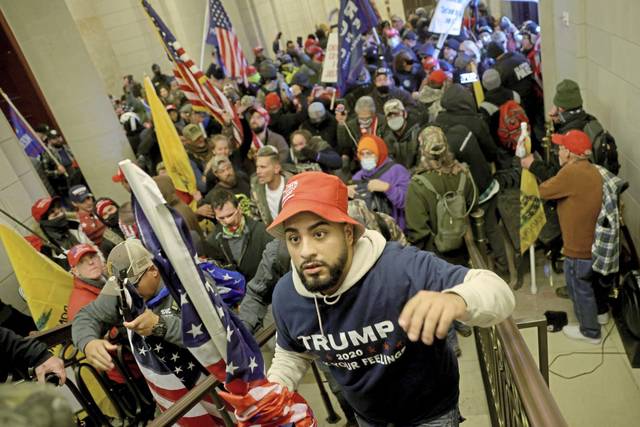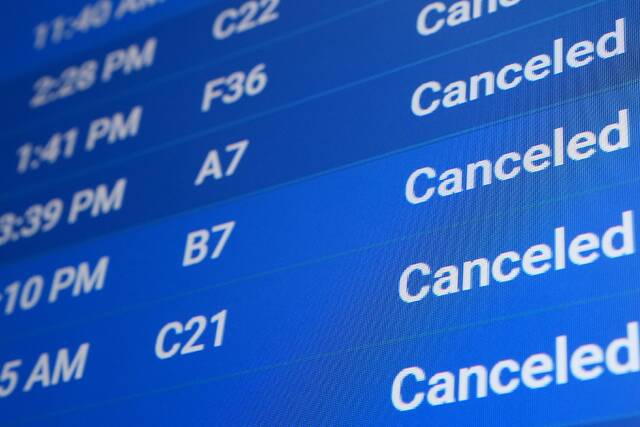Every semester in my introductory American Government class, I have my students read a short speech written by a 28-year-old over 150 years ago. It turned into one of the most important speeches in American history, even though many people have forgotten it today. The speaker, a relatively unknown Midwestern lawyer, was concerned about a massive increase in mob violence in place of the rule of the government, the law and the courts.
The speaker, who was of course a young Abraham Lincoln, argued in his 1838 Lyceum Address that mob violence, by anyone, even in response to violence, had two basic problems: The mob might hurt innocent people and the lawless would not be punished. Over time this would lead to more lawbreaking and eventually dissolve the attachment of the people to their government. In short, mobs are anarchists.
Lincoln maintained that this could only be avoided by teaching Americans to never violate laws — and to follow the Declaration and the Constitution. Lincoln knew there were bad laws, of course, but he argued in a democracy they could be repealed through elections and the normal democratic process.
In Lincoln’s mind, there was no external threat that could ultimately defeat the Union. The real danger was from within. How so? America’s founders did their work well and crafted a free democratic regime, the first of its kind, on a solid foundation. They were and are our Great Men.
Now Lincoln said the only way a future political leader, an “Alexander, a Caesar or a Napoleon,” could gain fame similar to George Washington is by overthrowing our government, our traditions and our Constitution: “Is it unreasonable then to expect, that some man possessed of the loftiest genius, coupled with ambition sufficient to push it to its utmost stretch, will at some time, spring up among us?”
Thus the gravest threat to America was a demagogue taking control because of factional disputes and mob violence within the country. This demagogue could only be resisted by a people “united with each other, attached to the government and laws, and generally intelligent, to successfully frustrate his designs.”
Ordinarily, when I discuss this speech with my students, our conversation is historically based. We talk about how Lincoln held to his views during the Civil War, by acting at the very limits of the Constitution, but not going beyond them. We consider possible exceptions to Lincoln’s belief that the law should never be disobeyed, especially in light of the civil disobedience of Martin Luther King Jr.
However, this spring that discussion will have to be much more practical. What we as a country witnessed on Jan. 6 can only be described as unbelievable: American citizens breaking into the United States Capitol Building, members of Congress being ordered to hide and given gas masks to wear, Capitol police with drawn firearms pointed at the doors to the House chamber.
This is an attempted coup.
And it is the foreseeable and predictable result of President Donald Trump, his lawyers and his allies, including some particularly craven members of Congress, spending the last two months repeating spurious claims of election fraud, in spite of all evidence to the contrary.
We just witnessed a remarkably fair and free election where Republican and Democratic poll workers had unprecedented access to monitor vote counting, even with a global pandemic. And yet from election night Trump has argued the vote was stolen. He has at this point lost 62 cases in court — and when asked to present actual evidence of fraud in open court, his lawyers have admitted they have none. Trump and some of his Republican allies have argued, despite all reason, that there was fraud in an election that simultaneously hurt Trump’s election chances but helped Republicans in House and Senate races.
Nonetheless, Trump has continued to argue the election was stolen. He has threatened members of his own party, including Brad Raffensperger, the Republican secretary of state in Georgia, and demanded in Jan. 2 phone call: “So look. All I want to do is this. I just want to find 11,780 votes, which is one more than we have. Because we won the state.”
Trump is wrong. America has been a unique country for many reasons, but one critically important reason is that every four years we have either had a president reelected or a peaceful transition of power. Even in emergencies. During the Civil War. During World Wars I and II. During the Cold War under the threat of nuclear annihilation.
Because presidents, even those who lost reelection campaigns, have held true to Lincoln’s belief that we all must abide the law and the results of the people’s election.
Until now.
Caleb Verbois is a professor of American politics at Grove City College.








